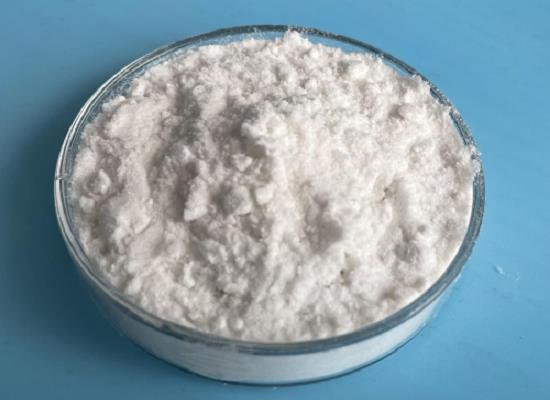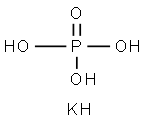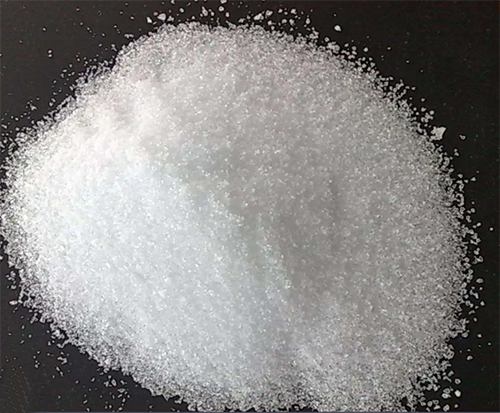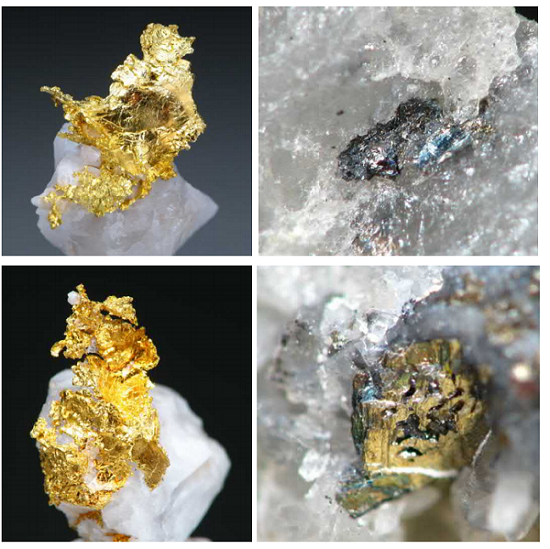Potassium Phosphate Dibasic: Overview and Biochemical Applications
General Description
Potassium Phosphate Dibasic is a versatile inorganic compound which is widely used in various industries. When used as a fertilizer, food additive, and buffer, it facilitates plant growth and provides essential phosphorus. In biochemical applications, it plays a significant role in enhancing the production and quality of polysialic acid (PSA), maintaining molecular weight stability, and ensuring optimal pH levels. The buffering capacity of potassium phosphate boosts PSA yield and stability in bioreactor cultures. Through complex interactions with PSA macromolecules, it sustains structural integrity, making it indispensable in biotechnological manufacturing processes.

Figure 1. Potassium Phosphate Dibasic
Overview
Potassium Phosphate Dibasic, also known scientifically as dipotassium phosphate, is an inorganic compound with the chemical formula K₂HPO₄. It is a highly soluble salt commonly used in a variety of applications, including as a fertilizer, a food additive, and a buffering agent in several industries. As a source of potassium, Potassium Phosphate Dibasic is vital for plant growth, making it a key ingredient in agricultural practices. It provides a readily available form of phosphorus as well, which is essential for energy transfer and photosynthesis in plants. In the food industry, Potassium Phosphate Dibasic serves as an emulsifier, stabilizer, and buffer. It helps maintain the texture and shelf-life of processed foods. Additionally, in pharmaceutical formulations, Potassium Phosphate Dibasic is utilized to adjust pH levels, enhancing the stability and efficacy of various medicines. Furthermore, Potassium Phosphate Dibasic is employed in water treatment facilities to prevent the formation of scale and corrosion, thereby extending the life of plumbing and processing equipment. Its buffering properties are also critical in maintaining pH stability in cosmetics and skin care products, ensuring product safety and effectiveness. Overall, the versatility of Potassium Phosphate Dibasic in industrial, agricultural, and consumer products underscores its importance across multiple sectors. Its role in promoting plant health, food quality, and product stability makes it an indispensable chemical compound in many formulations. 1
Biochemical Applications
The effects of potassium phosphate dibasic(PDP), potassium aluminum sulfate (PAS) and copper sulfate (CS) on early-stage renal carcinogenesis were investigated in unilaterally nephrectomized male Wistar rats after N-ethyl-N-hydroxyethylnitrosamine (EHEN) administration. After feeding 1,000 ppm EHEN, or basal diet for 2 weeks and removal of the left kidney at week 3, male Wistar rats were divided into 8 groups of 20 rats each. These groups received the following dietary treatments: 50,000 ppm PDP, 50,000 ppm PAS, 5,000 ppm CS or basal diet, respectively, for 18 weeks from weeks 3 to 20. The average numbers of adenomatous hyperplasias counted as preneoplastic lesions in the EHEN with 50,000 ppm PDP group were significantly higher than in the EHEN alone group or the EHEN followed by 50,000 ppm PAS or 5,000 ppm CS group. The treatment with 50,000 ppm PDP induced renal calcification and promoted the development of preneoplastic lesions in unilaterally nephrectomized rats treated with EHEN, but that with 50,000 ppm PAS or 5,000 ppm CS did not.2
References:
[1] YOSHIO HIASA. Promoting Effects of Potassium Dibasic Phosphate on Early-stage Renal Carcinogenesis in Unilaterally Nephrectomized Rats Treated with N-Ethyl-N-hydroxyethylnitrosamine[J]. Cancer Science, 1992, 83 7: 671-793. DOI:10.1111/j.1349-7006.1992.tb01967.x.You may like
Related articles And Qustion
See also
Lastest Price from Potassium Phosphate Dibasic manufacturers

US $1200.00-1100.00/ton2025-09-24
- CAS:
- 7758-11-4
- Min. Order:
- 1ton
- Purity:
- 99%
- Supply Ability:
- 1000T/M

US $1200.00-1100.00/ton2025-09-24
- CAS:
- 7758-11-4
- Min. Order:
- 1ton
- Purity:
- 99%
- Supply Ability:
- 1000T/M



